To choose emotion over action is how madness lies, or at least that’s how it seems when it comes to television ratings in this Golden Age of procedurals.
It is rare to see a drama series deviate from by-the-numbers plots featuring by-the-book law enforcement characters because networks opt to make spinoffs within that formula rather than create new shows outside of it.
Someone apparently forgot to tell AMC because their deliciously non-formulaic series Interview With the Vampire is set to return for a highly-anticipated second season on May 12.
One could argue that this television series is a twice-over spinoff of Anne Rice’s 1976 novel, the source material of the 1994 theatrical film starring Tom Cruise, Brad Pitt, and Kirsten Dunst.
A better take might be to acknowledge how well this adaptation updates the original story to satisfy fans from both back in the day and now.
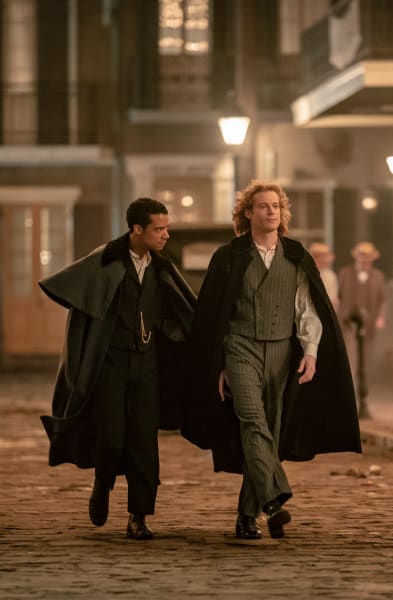
Rather than replicate the (perhaps overly) faithful-to-the-book film version, the series moves the novel’s timeline up roughly a hundred years to drop us into the bustling New Orleans cityscape of 1910. This allows the show to explore a different era’s societal problems while staying true to the characters.
After all, those very characters have kept this story alive for almost half a century.
Interview With the Vampire’s popularity as a book came from Louis’ tortured conscience over his vampirism, which was notable since the emotional side of that existence hadn’t been examined before.
Vampires were usually depicted as unfeeling, mindless monsters or gleeful sadists who relished hunting and killing their human prey.
Lestat is a perfect representation of this bacchanalian version of vampiric life. He is alternately intrigued and baffled by Louis’ refusal to embrace his new mode of existence fully.

Their “daughter” Claudia (wisely aged up for the series from the child of the book) is a blend of those two viewpoints: agonized at the emotional limits of being forever trapped in a too-young body yet enthusiastic about killing for food and fun.
Fans of the book and film know the beats of the main story, but Interview With the Vampire is not a plot-driven series. It features enough gore and action to rival the average procedural, but its focus is always on interior conflict.
Procedurals are plot-driven by definition; they use familiar steps to solve different problems and show their work by having characters voice every pertinent thought. Conflict is external: ransom demands, ticking time bombs, and gunfights.
Emotion-driven series are just that: focused on their characters’ feelings and internal conflict.
Interview With the Vampire contains its share of external conflict, even just in the pressing need to avoid human detection and sunlight, but this functions merely as a backdrop for the battle of wills between Louis and Lestat and the constant internal war that Louis wages with the remnants of his human conscience.

Shows that focus on feelings need not be dull, any more than procedurals require a lack of emotion.
All genres have some component of predictability baked into them: romances end with a Happily Ever After, mysteries end with the murder solved, and thrillers end with the world saved.
The formulaic nature of procedurals isn’t what makes them dangerous when they’re the only thing on the menu; it’s their static characters and focus on external conflict.
If there’s a line in the sand between “feelings” shows and procedurals, it’s the notion of character evolution.
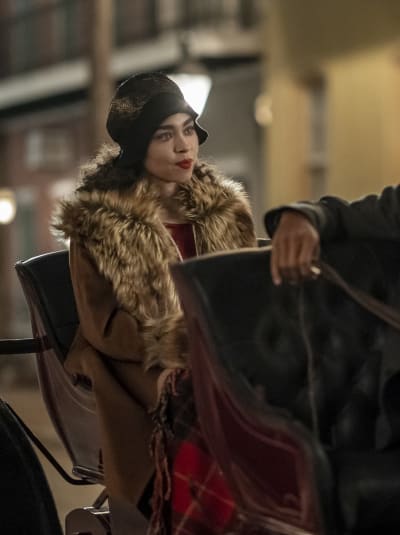
Procedurals rely on a degree of character stasis where the audience can reasonably predict a character’s response to any given situation within the world of the show.
That’s because the goal of a procedural is not character development; it’s story closure.
Somewhere in the middle are procedurals that incorporate a modicum of character development into their episodes or season-long arcs.
A good example is the beloved classic police procedural Castle, about a wildly successful playboy mystery author with writer’s block who shadows a beautiful NYC detective on her murder investigations as research for his books.
The first season is a quiet miracle of a show where Nathan Fillion’s swaggering Rick Castle transforms from a petulant celeb lothario into a sensitive adult male with renewed purpose in art and life.
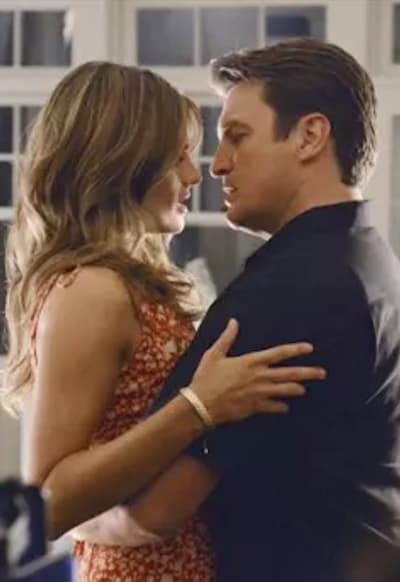
(Unfortunately, in later seasons, the show completely desexualized Rick Castle, making him a wisecracking teddy bear instead of a slightly reformed rake who could still smolder.)
Procedurals often feature incremental character development but are still defined by a focus on plot.
They can also be a secret third thing, as immortalized in the Seinfeld credo of “No hugging, no learning.” Like The Simpsons, that show featured wildly unpredictable plots offset by characters who remained the same throughout their runs.
There is nothing inherently wrong with procedurals, Seinfeld, or The Simpsons. The concern these days is that ALL we’re getting are procedurals, so we’re missing out on the emotional examinations provided by “feelings” shows, which were once part of our balanced television diet but are now increasingly rare.
Interview With the Vampire may be viewed as a bridge series between “feelings” shows and procedurals. It features gore GALORE and can be enjoyed solely on the level of spectacle.

It joins recent outlier shows like Shogun that seem purely plot-driven on the surface but feature deep psychological explorations of their characters.
The overwhelming number of recent procedurals has contributed to the rise of “laundry-folding television,” otherwise known as shows that can be watched and enjoyed without one’s full attention: we know the story beats, there won’t be an unforgettably original line of dialogue to miss, and none of our friends will remember the show to discuss in any event.
Interview With the Vampire blends emotion and style to embody “feelings” television fully. We watch its characters evolve and sink into the visual sumptuousness offered by its high production value.
Procedurals are overly plentiful right now, and not just on CBS. They are addictive and fun, but there still needs to be room left for shows that don’t focus on plot.
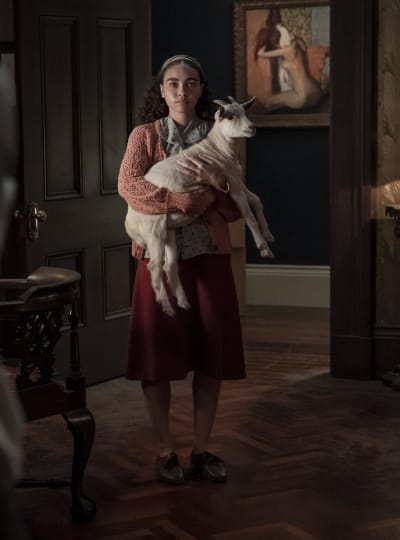
Interview With the Vampire has brought feelings and art back to our television screens, hopefully with an audience appetite for more shows like it.
Its popularity isn’t just based on being part of an existing franchise; that franchise exists because of the emotional complexity behind Anne Rice’s creations.
It could be argued that Lestat doesn’t necessarily change as a character throughout the series. Or, his vampirism could be compared to winning the lottery in the common belief that money doesn’t change who you are; it just makes you more of who you already are.
It is almost guaranteed that Lestat, as a human, was already close in personality to who he is now as an immortal.
Lestat’s arc can be viewed as a study in sociopathy, but his feelings for Louis challenge that theory. Louis was a novelty and a welcome distraction for the bored vampire Lestat, but their relationship also contained real emotion.
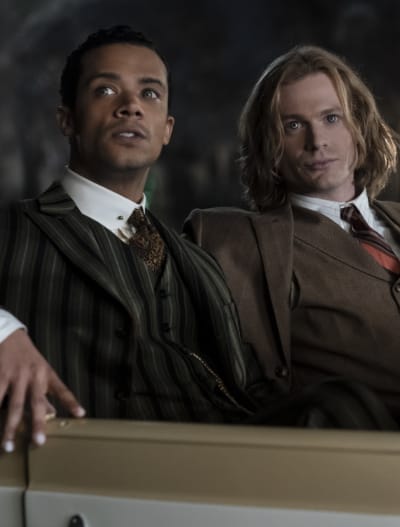
Season 2 of Interview With the Vampire moves the show’s action from New Orleans to Paris with a decidedly more gothic feel.
New adventures, acquaintances, and moral quandaries undoubtedly await the core characters.
However, Louis and company would be wise to remember that no matter where you go… there you are.
Interview With the Vampire’s second season starts May 12 on AMC.
Are you excited for the show’s return? Let us know in the comments!
Paullette Gaudet is a staff writer for TV Fanatic. You can follow her on X.
